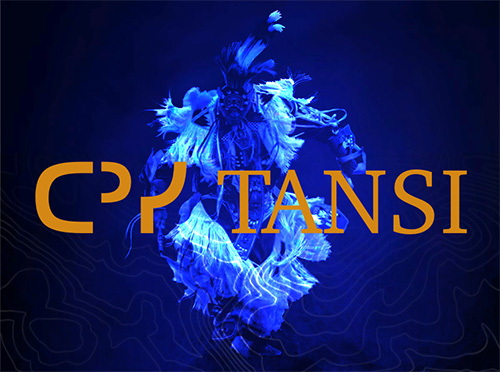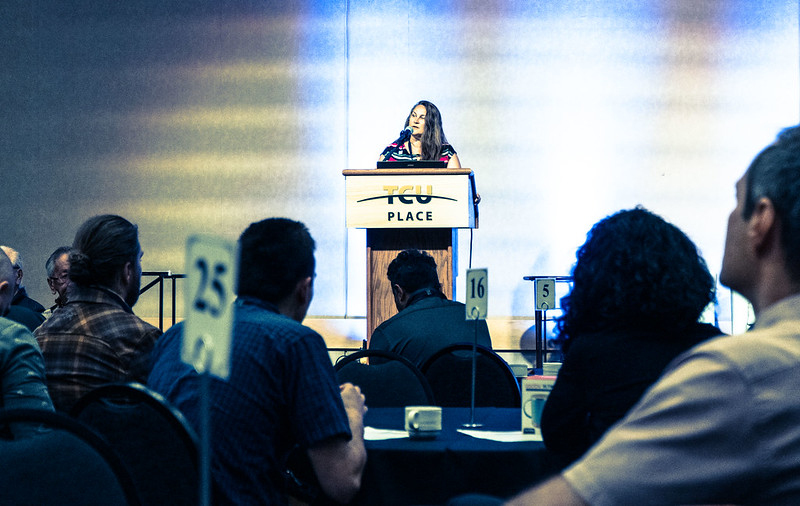Meeting Summary
GWF Final Open Science Meeting - "Results, Capacities, and Solutions"
We were delighted to hold the final in-person GWF Open Science Meeting on May 15-17, 2023. At this meeting we presented the penultimate results of GWF and started to outline the final synthesis of results into a user question-centric framework. As GWF projects and core teams neared completion of their work, this meeting focused on synthesizing the major outcomes of the program by bringing us together to share our activities, results, impacts and stories. It was also the launch of the newly funded Global Water Futures Observatories (GWFO) project that will allow many of our field and laboratory research sites to continue operations and data management to 2029. The meeting was organized around synthesis topics and themes with high-level presentations and panel discussions in plenary, with time for poster viewing and networking. There was a showcasing of GWF artwork throughout the meeting and a series of activities organized by and tailored for the GWF Young Professionals. The newly renovated Wanuskewin Heritage Park hosted us again for an afternoon of Indigenous cultural sharing and learning, and hearing from our Indigenous-led projects and partners on this essential part of GWF—the amplification of Indigenous voices, perspectives, and knowledge.
Meeting at a Glance and Agenda
|
|
Sunday, May 14 |
Monday, May 15 |
Tuesday, May 16 |
Wednesday, May 17 |
| Morning | Opening Session and Thematic/Topical Panels | Thematic/Topical Panels and Poster Session | Thematic/Topical Panels, Poster Session, Meeting Closing | |
| Afternoon | Lunch and Indigenous-focused and led events at Wanuskewin Heritage Park |
Lunch, and Invited Luncheon Speaker; Thematic/Topical Panels and Poster Session |
Lunch and Departure Young Professionals field trip to St. Denis National Wildlife Area |
|
| Evening | Sunday Evening Reception (USask Convocation Hall) |
Reception, Dinner; Public Art Exhibition |
Reception, Dinner Invited Dinner Speaker Young Professionals Social Night |
Click here to view the Full Meeting Agenda
List of Poster Lightning Talks.
Poster Presentations
Recordings (English)
Recordings (French)
Darrell Paskimin - Grass Dancer & Singer

Darrell Paskimin welcomed attendees into the space at Wanuskewin with drum and song on Monday afternoon.
Darrell is a Nehiyaw Plains Cree member of Sweetgrass First Nation in Treaty Six Territory. His background is cultural and community-based.
Darrell has been a Grass Dancer for the past 33 years and a singer with the renowned family drum group BLACKSTONE for 36 years. As a substance-free group, Blackstone advocates for a holistic worldview and way of life.
Some of Darrell's accomplishments include performances at the 1996 Summer Olympics in Salt Lake. He has travelled to Japan with The Theater of Yugen (San Francisco) on a collaborative production of Noh and Indigenous dancing and singing. Darrell has also performed in Qatar, Saudi Arabia representing First Nations peoples.
As Musical Director for The American Indian Dance Theater out of New York City, Darrell oversaw rehearsals and performance coordinations. He was also featured in the IMAX production, "Pulse: A Stomp Odyssey". Most recently, he focuses his efforts into giving back to the community by teaching elementary and high school students First Nations teachings.
Virtual Water Gallery

GWF’s Virtual Water Gallery hosted an art-science exhibit for the duration of the GWF Finale at TCU Place. The exhibit aimed to inspire participants to reflect on their research and draw their own water stories using a doodle station.
The public was invited to tour the exhibit on the evening of Monday, May 15th.
Workshop: Create Inspiring presentations for the GWF Finale
GWF Young Professionals, with special guest Nancy Goucher (GWF Knowledge Mobilization Specialist), hosted a 1-hour virtual workshop on tips for delivering inspiring lightning talks and creating effective research posters. View the recording below:


